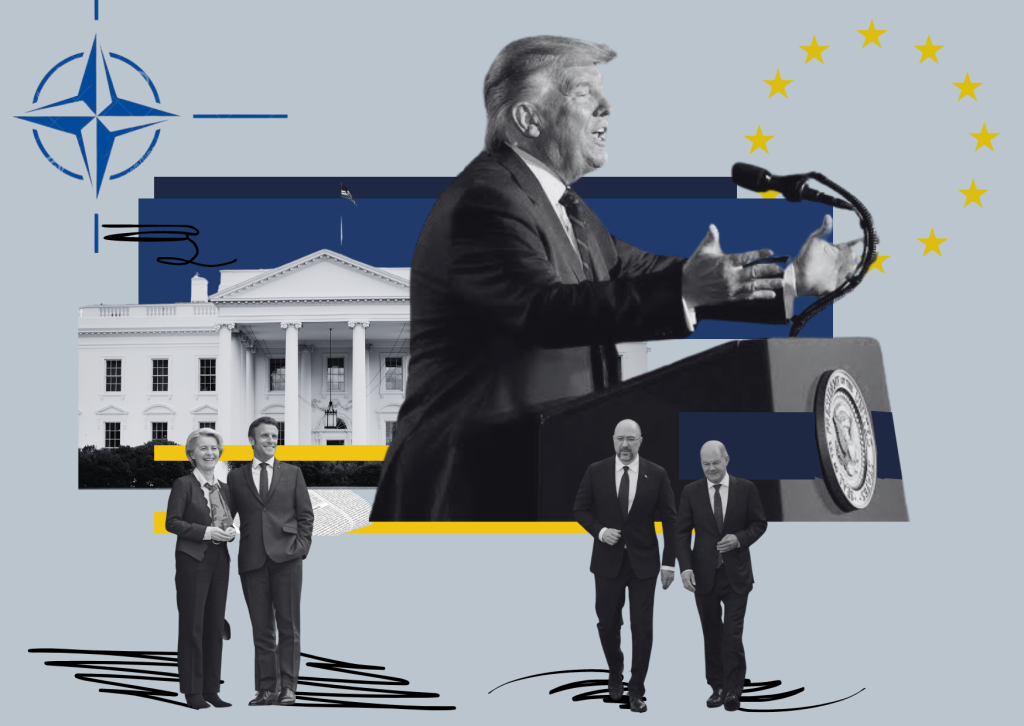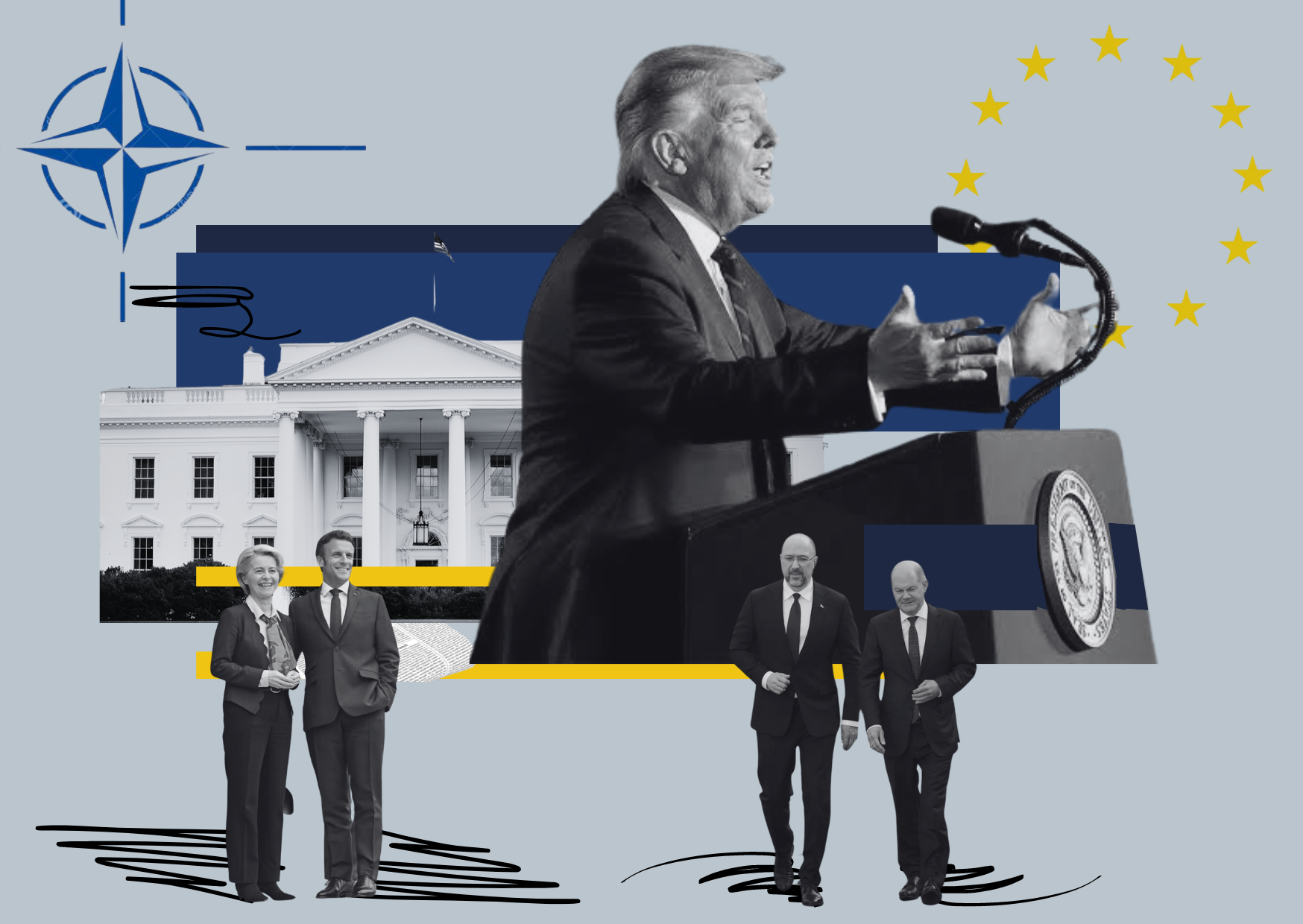
European Union has been increasing its defence efforts amid Russian aggression in Ukraine. It seems more of a strengthening of European pillar of NATO rather than threatening US through “supranational European army”. EU and NATO play complementary role in European security structure, so they do not aim replacing each other.
APRIL 05, 2024

The EU has been more active than ever regarding the security and defence policies, starting from Russia’s 2014 annexation of Crimea and intensified with the Ukraine war. However, ever since the EU first included foreign and security affairs into its policy-making with the end of the Cold War, EU’s own efforts for being an autonomous security actor has been an intense debate that create the camps of “Europeanists” and “Atlanticists”, while one foresees a Europe that is militarily capable and does not need a US security guarantee, and the other supports stronger US-Europe ties. Right after the historic Franco-British St. Malo declaration in 1998 that indicates “the need to give the EU capacity for autonomous decision-making and action, backed up by credible military forces”, then-secretary of state of the US Katherine Albright warned about avoiding duplicating, decoupling and discrimination within NATO members; i.e. the two sides of the Atlantic.
The millennium also witnessed differentiations on positions between key members of the Alliance in critical issues such as Iraq and Libya interventions. Furthermore, French president Macron’s declaration brain death of NATO as well as invoking article 42.7 of Treaty of EU, instead of NATO after the 2015 attacks attracts the question that whether or not there is a clash between NATO and EU in terms of defence and collective security. However, given the fact that two organisations’ focuses are different in nature and rather complementary to each other in given policy areas, it is clear that EU does not have any intention to replace NATO, or building a supranational “European Army”, but rather it pursues being an autonomous security actor in its own right.
This can be observed when we look at EU’s defence and security related activities more carefully. Ever since the emergence of Common Security and Defence Policy (CSDP), the operations to the third countries focused on assistances such as civilian government building and police force like in the case of Kosovo following the NATO air campaign, small range military training in some African countries such as in Somalia, or again, small range training and equipment help to Ukraine. CSDP operations also run intergovernmentally in nature, meaning that the Commission and the Parliament, a.k.a. supranational institutions of the Union, do not play any role in decision making unlike other policy areas. This shows two things: first, EU has a complementary role in those third countries, and second, the operations does not aim deterrence or territorial security as NATO do.
Some steps in the integration such as Commission-backed European Defence Fund (EDF) and Permanent Structured Cooperation (PESCO), founded in 2017, to mitigate this ad hoc and inconsistent nature of the defence integration process because it also includes qualified majority voting alongside unanimity and binding commitments of the member states. The success is in doubt, let alone given the fact that the projects of the member states, part of the PESCO structure does not anticipate transfer of power to EU level, rather, fundamentally aim on cutting costs, and easing the procurement struggles, which are open to third party participants. As for the EDF, the Commission basically aims funding R&D and capacity building projects from European defence companies. Current efforts also makes sense when we read them as Europe’s solution in times of austerity, which actually opens more space for defence single market for reducing costs between member states. European leaders take these steps in defence sector because of some valid reasons and as reactions in a changing security environment.
Europe is facing some major security threats. Firstly, Russian aggression starting from annexation of Crimea and its increasing political influence in the former Soviet region including Ukraine and Caucasus. Russia also continues spending for military, 7.1% of its GDP in 2024. This poses a direct threat, and makes EU border countries vulnerable to Russian aggression. However, the case is slightly different for the US, possibly because the continent’s importance for the US interests has been declining since the Soviet threat diminished and it’s a question that whether or not the US provides military security in case of a further Russian aggression. It’s alarming also because of the possibility of Donald Trump’s re-election in the upcoming US elections while it is clear he is not happy with the current dynamic in NATO, threatening Europeans for pushing them “paying their bills”. Even though spending is expected to rise in anticipated 2% of combined GDP in European NATO, compared to Russian efforts, Europe seems unprepared and lacks modernised army.
European Union stays indispensable for European security. Its unique assets in fighting against present day threats alongside conventional military ones, such as cyber security, disinformation, border protection, food security and climate security; which in essence, NATO cannot fight alone. The aim has always been strengthening the “European pillar” of NATO instead of building an alternative.
A curated seletion of FA’s must-read stories.
Written By: SHAGNIK BARMAN
Written By: BERK TUTTUP
Written By: ABBY L’BERT
Written By: BILLY AGWANDA
Written By: HIRA SARWAR
Written By: BATUHAN GUNES
Written By: LEON REED
Written By: DARSHAN GAJJAR

Ceren Ozgun, holds a MA degree in International Relations at the University of Kent, Canterbury UK. Her main research interests are European integration and EU affairs and international relations theories.
Written By: GABRIEL RAMIREZ
Written By: DILARA SAHIN
Written By: DILRUBA YILMAZ
Written By: NILAY CELIK
Written By: ELDANIZ GUSSEINOV
Written By: JOSEF SCHOEFL
Written By: SELCAN BEDIRHANOGLU
Written By: FATIH CEYLAN
FA’s flagship evening newsletter guilding you through the most important world streis ofthe day. Delivered weekdays.
